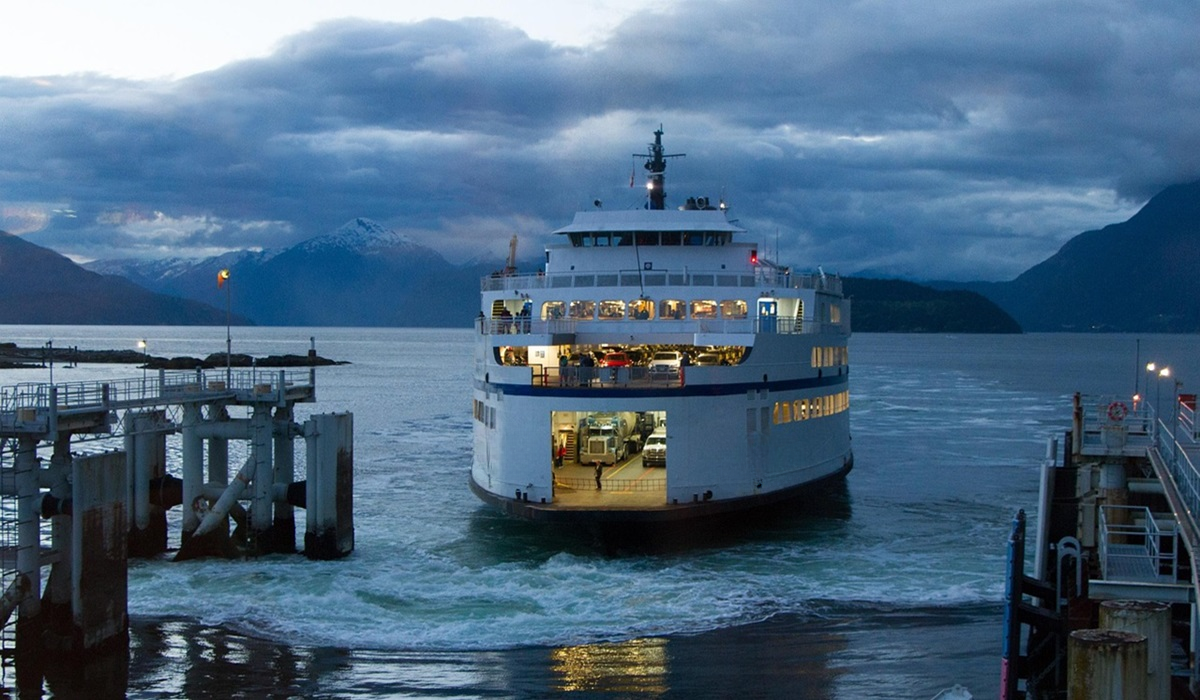BC Ferries Picks China’s CMI Weihai for New Ships—Proof That Pragmatism Beats Politics
- TDS News
- Canada
- June 10, 2025

By: Donovan R. Martin Sr. Editor In Chief
In an era where political theatre is mistaken for economic strategy, BC Ferries just delivered a reality check. By selecting China Merchants Industry Weihai Shipyards to build four of its New Major Vessels, BC Ferries didn’t just choose a contractor—they chose logic over loudness, results over rhetoric, and global pragmatism over parochial pandering.
It’s the kind of forward-thinking decision you’d expect from a business that actually understands the word business. In today’s global market, where time, cost, precision, and delivery matter more than nationalist slogans, Chinese shipyards are not just players—they are leaders. And to ignore them out of some contrived political loyalty to North American exceptionalism is not just shortsighted—it’s reckless.
Let’s not sugarcoat it: China is dominating the global industrial sector. We’ve seen it firsthand. They’re not just building cars, tunnels, bridges, and ships at breakneck speed—they’re doing it with exacting standards, cutting-edge technology, and a level of coordination that many Western governments can only dream about. Whether it’s EVs, infrastructure, or vessel design, China is building the future, while the West is often too busy blaming China for everything under the sun.
That’s what makes BC Ferries’ decision so significant. They cut through the fog of anti-China hysteria that has gripped political discourse in both Canada and the U.S., and asked a simple, critical question: Who can build the best ships for the best value, on time and with the technical sophistication our fleet demands?
The answer, unapologetically, was China.
This is not a knock against Canadian workers or domestic industries. It’s a recognition of scale and specialization. Canada doesn’t currently have the shipbuilding capacity to match the timeline, cost-efficiency, or technical know-how that facilities like CMI Weihai bring to the table. These are shipyards that build vessels for Marine Atlantic, Stena RoRo, Brittany Ferries, and others—this isn’t their first rodeo.
“Over the last decade or so, the vast majority of Interferry’s operator members building large ferries have done so and continue to do so in China. In fact, there are only a few remaining shipyards outside of China that still have the desire, expertise and/or infrastructure required to build large, complex ferries, as well as provide support throughout the vessel’s life.”
— Mike Corrigan, Chief Executive Officer, Interferry
Instead of pretending we live in an economy sealed off from the rest of the world, BC Ferries is acting like what it is: a global operator tasked with delivering real services to real people. The political obsession with demonizing Chinese technology and manufacturing doesn’t pay the bills or keep the ferries running. But this deal will.
In its first decade alone, the partnership is expected to generate $230 million in local maintenance spending and 17,000 job-years in British Columbia. Let that sink in. Using Chinese shipbuilders doesn’t gut the local economy—it supports it. It feeds it. Because these ships still require long-term upkeep, parts, services, docks, and crews here at home. The result? Canadian jobs, Canadian reliability, Canadian connectivity. Not to mention the fact these new hybrid diesel-electric ships will dramatically reduce emissions and underwater noise, protecting the very ecosystems that ferry routes depend on.
Now, could Canada eventually build these ships domestically? Sure—if it wants to pour billions into reviving its shipbuilding capacity, train a whole new generation of marine engineers, and wait another decade. But that’s not where we are. And pretending otherwise won’t magically make the numbers—or the infrastructure—appear.
Let’s be clear: politics has no place in procurement when it comes to delivering essential public services. If Canada and the U.S. are serious about competing in the 21st century, they need to drop the Cold War posturing and start focusing on what actually works. That means partnerships based on performance, not propaganda.
In the end, this move by BC Ferries isn’t just about building ships. It’s about sending a message. Pragmatism beats paranoia. Results beat rhetoric. And when it comes to delivering for the people, business-minded decisions—yes, even if they involve China—are not just smart. They’re necessary.
And if Ottawa and Washington are paying attention, they might just learn something.








